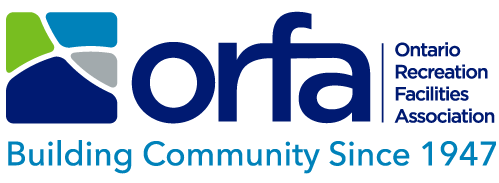- ORFA Home
- Resource Centre
- Technical Corner
- Water Clarity Makes the Pool Operator a Lifeguards Best On-Deck Assistant
Technical Corner
Water Clarity Makes the Pool Operator a Lifeguards Best On-Deck Assistant
April 20, 2023
The main role of a lifeguard is to prevent accidents and spot potential trouble/hazards before they become life-threatening and respond to emergencies when needed. They also educate the public about the risks associated with aquatic activities and how to be water smart. Often lost in this objective is the role that qualified pool operators play in a lifeguard’s ability to keep pool water clean and clear. The national standard is for aquatic facilities to be closed to the public if the deepest point of the pool (main drain) cannot be clearly observed from the pool deck. There are three main causes for cloudy pool water: poor filtration, chemical imbalances, or environmental factors such as trees, or wildlife.
Filter and pump problems can be caused by a range of issues. Clogged filter media, poor water flow directionality, or a full skimmer basket can all contribute to the issue. Chemical imbalances are also a common cause of cloudy pool water making a quality water testing program critical. A balanced pool can temporarily cloud over immediately after being shocked but will often clear quickly on its own. Environmental factors encompass pretty much everything around the pool, such as severe weather, wildlife, construction, trees, pool algae, and people. These factors can cause dust, pollen, and algae blooms to cloud the pool. If your pool is green and cloudy, the culprit may be algae. But swimmers are the most common environmental factor affecting the quality of pool water. Hair, skin products, and makeup seeps into the water along with dirt, sweat, skin, hair, and oils into your pool.
Keeping a swimming pool clear is only achieved by an adequately trained and qualified pool operator. The clearer the pool water, the less risk to swimmer safety and the better a lifeguard can perform their duties. Regulation 565 states in section 6.
(1) Every owner of a public pool or public spa shall designate an operator. O. Reg. 494/17, s. 5.
(2) Every operator shall be trained in public pool and public spa operation and maintenance, filtration systems, water chemistry and all relevant safety and emergency procedures. O. Reg. 494/17, s. 5.
The Regulation is not firm in regard to if the “designated pool operator” or a designate trained to the same level as the designated pool operator must be present when the pool is open. The ORFA is of the opinion that this is a reasonable industry best practice expectation to be met.
Industry best practice means processes or pathways that form a reasonably expected level of competency or performance in the same or substantially similar sector seeking to comply with its regulatory responsibilities. The historically accepted training and level of certification no longer is considered “industry best practice” for the “designated pool operators” in Ontario. This training remains a recognized start to an aquatic professional’s pathway to competency. The ORFA continues to promote with all aquatic governing authorities that the Certified Aquatic Technician (CAT) professional designation is a minimum level of competency for “designated pool operators” in Ontario.
The ORFA continues to be recognized as the provincial leader in recreation facility operations and as such, will be used as the benchmark by governing agencies if operations are called into question.
Comments and/or Questions may be directed to Terry Piche, CRFP, CIT and Director, Training, Research and Development, Ontario Recreation Facilities Association
|
Note: The publisher, (Author(s)/General Editor(s)/Licensor(s)) and every person involved in the creation of this communication shall not be liable for any loss, injury, claim, liability or damage of any kind resulting from the use of or reliance on any information or material contained in this communication. While every effort has been made to ensure the accuracy of the contents of this communication, it is intended for information purposes only. When creating this communication, none of the publisher, the (Author(s)/General Editor(s)/Licensor(s)) or contributors were engaged in rendering legal or other professional advice. This communication should not be considered or relied upon as if it were such advice. If legal advice or expert assistance is required, the services of a competent professional should be sought and retained. The publisher and every person involved in the creation of this communication disclaim all liability in respect of the results of the any actions taken in reliance upon information contained in this communication and for any errors or omissions in the works. They expressly disclaim liability to any user of the work. |
